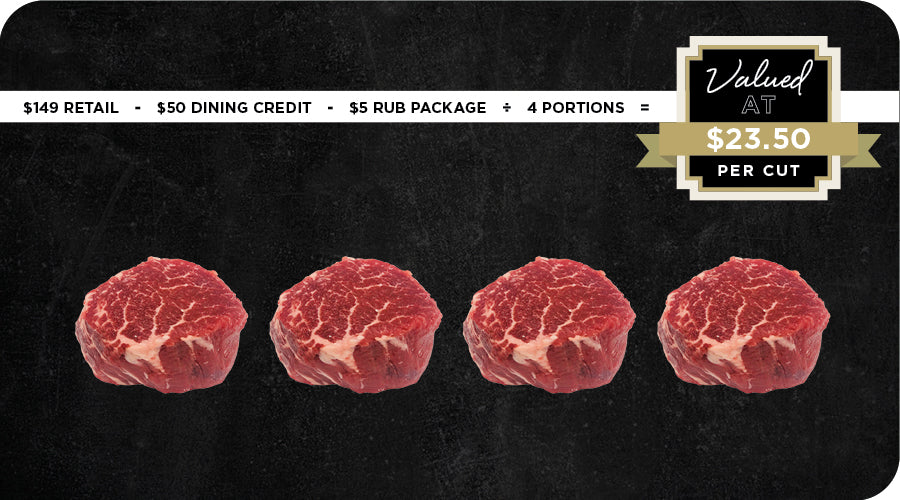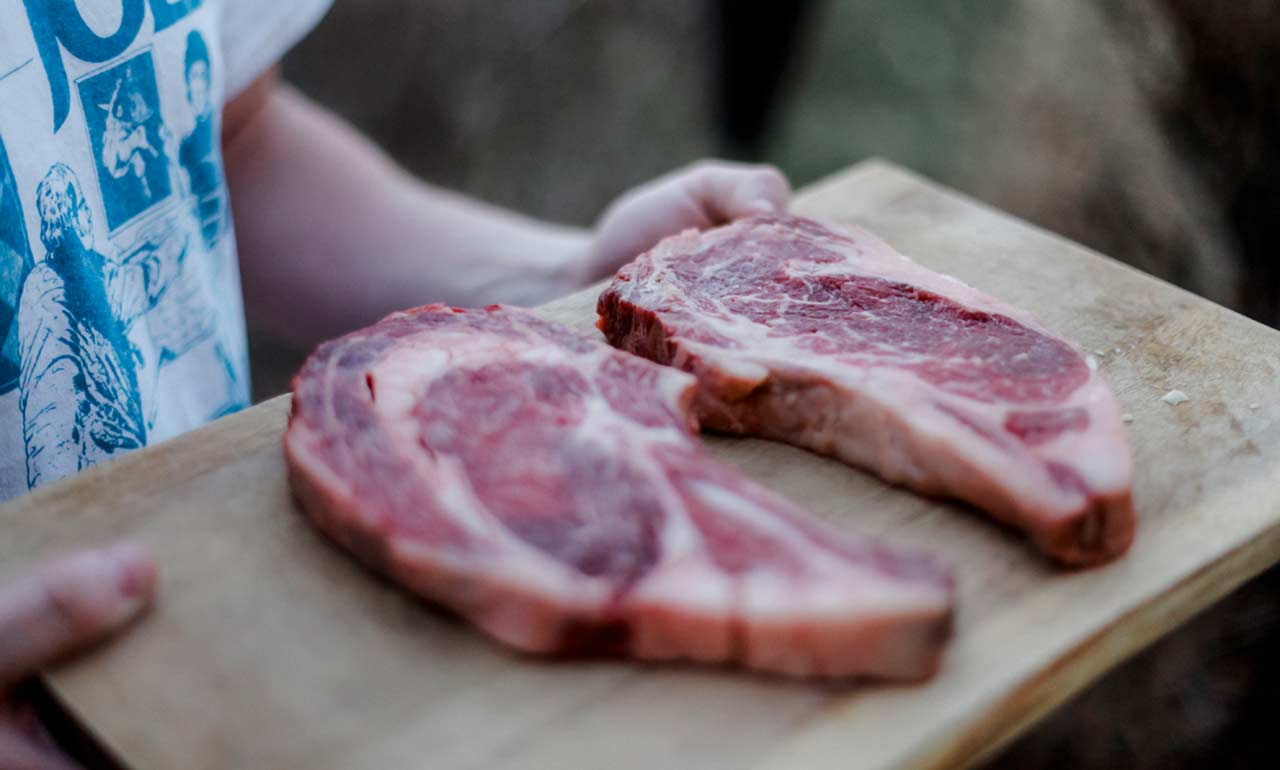Why Shopping at a Local Meat Market Guarantees Fresh, High-Quality Cuts
Shopping at a neighborhood meat market supplies distinctive benefits that often go undetected by consumers accustomed to bigger retail chains. These markets supply straight access to fresh, high-grade cuts, an outcome of reduced transport time from ranch to counter. This not only boosts flavor however additionally supports regional farmers, cultivating community connections and lasting practices. Strenuous quality control determines ensure that each acquisition meets high standards of security and quality. Yet, the effects of picking local extend beyond instant benefits, triggering a more detailed exam of what this selection truly means for both consumers and the local economic climate.
Advantages of Regional Sourcing
In the world of food purchase, the advantages of regional sourcing attract attention plainly. By buying meat from local markets, consumers acquire direct access to items that are commonly fresher and much more flavorful than those located in bigger, industrial grocery stores. Neighborhood sourcing minimizes the time and distance food takes a trip from farm to table, which not just improves taste yet additionally protects nutritional worth.

In addition, neighborhood sourcing often offers transparency concerning the origins of the meat. Consumers can ask regarding the farming methods made use of, pet well-being requirements, and whether the meat is natural or grass-fed. This info equips consumers to make educated choices straightened with their worths.
Quality Control Standards
Neighborhood meat markets usually abide by extensive quality assurance standards that make certain the items provided meet high safety and security and quality benchmarks. These standards commonly include different stages of the meat manufacturing process, from sourcing to handling and storage space.
First, regional markets frequently develop rigid supplier standards, making sure that only reliable ranches and producers are utilized - bagley meat market edwardsville il. This reduces the chance of contamination and advertises higher pet welfare criteria. Additionally, several local meat markets apply regular examinations to verify that the meat is refined under sanitary problems, further lessening wellness dangers
Temperature level control is another critical element of quality control. Regional meat markets regularly keep track of refrigeration systems to keep optimal storage temperature levels, ensuring that meat stays safe and fresh for usage. The application of traceability systems permits markets to track the origin of their products, giving transparency and responsibility.
Last but not least, staff at regional meat markets are usually trained to identify signs of perishing and understand appropriate handling strategies. This commitment to high quality control not just boosts the total standard of the meat but likewise promotes customer trust, making local meat markets a reliable source for high-grade cuts.
Supporting Regional Farmers
Sustaining neighborhood farmers is important for promoting a lasting food system and enhancing community resilience. They directly contribute to the incomes of farmers in their region when consumers select to shop at local meat markets. This not only supports the local economy but also strengthens the farming sector, guaranteeing that it remains dynamic and practical.


Furthermore, supporting local farmers fosters a sense of neighborhood and connection between consumers and producers. It encourages openness in food sourcing and infuses trust fund, as customers can create partnerships with the people who increase their food. This direct connection eventually results in a much more engaged and notified public, which is important for promoting for sustainable agricultural practices in the future.
Sustainable Practices
Sustainable techniques in meat markets play an essential role in advertising ecological stewardship and making certain pet well-being. Regional meat markets typically prioritize sourcing their products from ranches that apply moral and sustainable farming approaches. These techniques include rotational grazing, which helps maintain dirt health and wellness and minimizes carbon discharges, alongside minimizing using prescription antibiotics and hormones in livestock.
In addition, regional meat markets usually stress transparency in their supply chains. Consumers are supplied with info regarding the beginning of their meat, allowing them to make enlightened options that align with their worths. By supporting neighborhood farmers that practice lasting methods, customers contribute to the conservation of biodiversity and the reduction of transport discharges related to long-distance meat circulation.
Additionally, lots of local meat markets take part in waste reduction approaches, such as utilizing every component of the animal and advertising off-cuts that might otherwise go unsold. By cultivating a much more lasting method to meat intake, these markets not only supply premium items but likewise add positively to the atmosphere and pet welfare. Fundamentally, purchasing at a regional meat market straightens consumers with a wider activity towards ethical and accountable food sourcing.
Individualized Client Service
Buying at a meat market often includes even more than simply the products offered; it is also regarding the experience and the browse around here partnerships built between clients and personnel. Individualized client service is a trademark of neighborhood meat markets, establishing them apart from larger grocery chains. Educated team make the effort to comprehend specific consumer choices, ensuring that each check out is customized to details demands.
Consumers gain from expert advice on site cuts, cooking methods, and preparation suggestions, fostering a sense of count on and loyalty. This personalized interaction allows customers to ask questions and seek recommendations, leading to informed buying decisions. Employee usually remember normal consumers and their choices, developing an inviting environment that cultivates community ties.
Moreover, tailored solution includes special demands, such as personalized cuts or certain preparation techniques, which larger retailers might not suit. This degree of interest strengthens the commitment of local meat markets to quality and customer fulfillment.
Fundamentally, customized customer care not only boosts the purchasing experience however also makes certain that clients leave with the most effective products matched to their culinary needs, making every visit a fulfilling one.
Final Thought
Finally, buying at a local meat market supplies numerous benefits, including remarkable freshness and quality due to lowered travel times. Rigid quality assurance procedures enhance openness and ensure high requirements for items. Supporting regional farmers cultivates neighborhood partnerships and strengthens the regional economy, while sustainable methods add to environmental stewardship. Furthermore, personalized client solution boosts the shopping experience, making regional meat markets a recommended choice for consumers looking for both top quality and ethical considerations in their food sourcing.
The ramifications of picking neighborhood expand past prompt advantages, motivating a more detailed examination of what this choice truly means for both consumers and the local economy.
Supporting local meat markets also contributes to the local economy. Local meat markets frequently monitor refrigeration systems to maintain optimal storage space temperature levels, making certain that meat continues to be fresh and secure for usage.Regional farmers are typically much more attuned to the particular needs of their communities, expanding plants and increasing animals that line up with regional tastes and choices. Sustaining regional farmers fosters area partnerships and enhances the local economic situation, while lasting methods contribute to ecological stewardship.